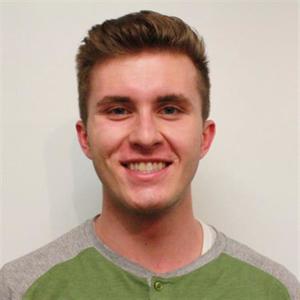Location
221 EB
Time
Tuesday/Thursday; Sec. 1: 9:00-9:50; Sec. 2: 10:00-10:50
Prerequisites
ChEn 170, Math 113 (or concurrent)
Website
The course website is ignite.byu.edu/che263
Instructor
David O. Lignell
330T Engineering Building
801-422-1772
davidlignell@byu.edu
Office hours (online): M-F 1:00-2:00 PM
TAs
- Josh Bedwell

- Tanner Polley

- TA office hours will be online
As you use office hours, please be aware that it is not appropriate for the TAs to give you answers or work the problems for you. We want to help you learn, but we will primarily provide guidance, ideas, and techniques. Debugging is a common issue and often much learning happens when debugging problems. We often help with this, but you should not expect the instructor or TAs to debug your codes.
Objectives
This course teaches basic computer skills for chemical engineers. Computational skills are essential in today’s environment. Chemical engineering involves solving problems for engineering design and analysis. Often, these problems are complex, nonlinear, require many steps, are to be solved many times, and often do not have closed form solutions. We will learn to use a spreadsheet (Excel), a programming language (Python), and a numerical software package (Mathcad). We will also cover basic numerical methods, and problem solving techniques in chemical engineering. Your skills and confidence as an engineer will grow with your abilities to tackle new and important problems. Specific course competencies are listed below.
Textbook
There is no required textbook. Lecture notes and online materials will be used.
Computers
Lectures will be conducted in a room with a computer for every student. All homework assignments will require the use of a computer. Students may use their own computers or those in university computer labs. College computers are in the CAEDM labs in CB 425, CB 308, CTB 450, and EB 207. To use the CAEDM computers, registration must first be completed using the terminal located outside room CB 423. Here is a link for more information: https://caedm.et.byu.edu/ .
Storage Media
You will need to save copies of all of your work. You can do this in your space on CAEDM (“J: drive”), or with a flash drive, etc.
Homework
Homework is due by 9:00 AM (sharp) on the assigned day. Late homework will not be accepted. The lowest three homework scores will be dropped. Homework will be turned in on Learning Suite. Grades will be posted on Learning Suite. All students must complete their own assignment reflecting their own work. You may not refer to any solutions from previous semesters or posted videos outside this course.
Quizzes
Some classes may include a short quiz at the beginning and/or the end.
Midterm Exams
There will be four midterms. These will be administered through Learning Suite outside of class. You will be told of any questions you miss and you can retake those questions for 1/2 credit.
Grading
Grades for the course will be based on the following distribution:
- Assignments: 35%
- Quizzes: 5%
- Midterms: 40% (10% each)
- Final exam: 20%
Course competencies
| Comp. | Level | Usage | Outcome |
|---|---|---|---|
| 2.1 | 2 | M | Students will demonstrate an understanding of fundamental mathematics (including calculus, linear and nonlinear simultaneous equation solving, etc.) by using computer tools to solve problems. |
| 3.1.1 | 3 | M | Students will be able to use basic engineering units in both SI and AES systems in solving problems, and be able to convert between unit systems while using an equation solver. |
| 5.2 | 2 | M | Students will be able to use a spreadsheet package to perform engineering calculations which include some of the following: economic analysis, processing and analysis of data, graphical analysis and presentation, etc. |
| 5.3 | 2 | M | Students will be able to solve numerical and symbolic problems using advanced math software. |
| 5.4 | 2 | M | Students will be able to write program structures, and understand when programming is most appropriate. |
| 6.1 | 3 | P | Students will demonstrate an ability to solve engineering problems. |
| 6.2 | 2 | M | Students will be able to convert problem solving strategies to procedural algorithms. |
| 6.6 | 2 | M | Students will be able to make order of magnitude estimates, assess reasonableness of solutions, and select appropriate levels of solution sophistication. |
Levels
- 1-exposure to material, but may not be assessed
- 2-competency assessed in course
- 3-competency is assessed in course and again before graduation
Usage
- M=main course content
- P=developed throughout the program
- I=introduction
Course Outcomes
Math Fundamentals
Students will demonstrate an understanding of fundamental mathematics (including calculus, linear and nonlinear simultaneous equation solving, etc.) by using computer tools to solve problems.
Engineering Units in SI and AES systems
Students will be able to use basic engineering units in both SI and AES systems in solving problems, and be able to convert between unit systems while using an equation solver.
Spreadsheets
Students will be able to use a spreadsheet package to perform engineering calculations which include some of the following: economic analysis, processing and analysis of data, graphical analysis and presentation, etc.
Mathematics Software
Students will be able to solve numerical and symbolic problems using advanced math software.
Write and Understand Program Structures
Students will be able to write program structures, and understand when programming is most appropriate.
Problem-Solving
Students will demonstrate an ability to solve engineering problems.
Problem-Solving into Algorithms for Procedures
Students will be able to convert problem solving strategies to procedural algorithms.
Estimations, Assessments, and Selections
Students will be able to make order of magnitude estimates, assess reasonableness of solutions, and select appropriate levels of solution sophistication.
BYU Policy Statments
Honor Code
In keeping with the principles of the BYU Honor Code, students are expected to be honest in all of their academic work. Academic honesty means, most fundamentally, that any work you present as your own must in fact be your own work and not that of another. Violations of this principle may result in a failing grade in the course and additional disciplinary action by the university. Students are also expected to adhere to the Dress and Grooming Standards. Adherence demonstrates respect for yourself and others and ensures an effective learning and working environment. It is the university’s expectation, and every instructor’s expectation in class, that each student will abide by all Honor Code standards. Please call the Honor Code Office at 422-2847 if you have questions about those standards.
Preventing Sexual Misconduct
In accordance with Title IX of the Education Amendments of 1972, Brigham Young University prohibits unlawful sex discrimination against any participant in its education programs or activities. The university also prohibits sexual harassment-including sexual violence-committed by or against students, university employees, and visitors to campus. As outlined in university policy, sexual harassment, dating violence, domestic violence, sexual assault, and stalking are considered forms of “Sexual Misconduct” prohibited by the university.
University policy requires all university employees in a teaching, managerial, or supervisory role to report all incidents of Sexual Misconduct that come to their attention in any way, including but not limited to face-to-face conversations, a written class assignment or paper, class discussion, email, text, or social media post. Incidents of Sexual Misconduct should be reported to the Title IX Coordinator at t9coordinator@byu.edu or (801) 422-8692. Reports may also be submitted through EthicsPoint at https://titleix.byu.edu/report or 1-888-238-1062 (24-hours a day).
BYU offers confidential resources for those affected by Sexual Misconduct, including the university’s Victim Advocate, as well as a number of non-confidential resources and services that may be helpful. Additional information about Title IX, the university’s Sexual Misconduct Policy, reporting requirements, and resources can be found at http://titleix.byu.edu or by contacting the university’s Title IX Coordinator.
Student Disability
Brigham Young University is committed to providing a working and learning atmosphere that reasonably accommodates qualified persons with disabilities. A disability is a physical or mental impairment that substantially limits one or more major life activities. Whether an impairment is substantially limiting depends on its nature and severity, its duration or expected duration, and its permanent or expected permanent or long-term impact. Examples include vision or hearing impairments, physical disabilities, chronic illnesses, emotional disorders (e.g., depression, anxiety), learning disorders, and attention disorders (e.g., ADHD). If you have a disability which impairs your ability to complete this course successfully, please contact the University Accessibility Center (UAC), 2170 WSC or 801-422-2767 to request a reasonable accommodation. The UAC can also assess students for learning, attention, and emotional concerns. If you feel you have been unlawfully discriminated against on the basis of disability, please contact the Equal Employment Office at 801-422-5895, D-285 ASB for help.”
COVID 19 Statement
While COVID 19 conditions persist and until further notice, students and faculty are required to wear face coverings at all times during class; faculty are not at liberty to waive this expectation.
Students who feel sick, including exhibiting symptoms commonly associated with COVID 19 (fever; cough; shortness of breath/difficulty breathing; chills; muscle pain; sore throat; new loss of taste or smell; etc.) should not attend class and should work with their instructor to develop a study plan for the duration of the illness.
Inappropriate Use of Course Materials
All course materials (e.g., outlines, handouts, syllabi, exams, quizzes, PowerPoint presentations, lectures, audio and video recordings, etc.) are proprietary. Students are prohibited from posting or selling any such course materials without the express written permission of the professor teaching this course. To do so is a violation of the Brigham Young University Honor Code.